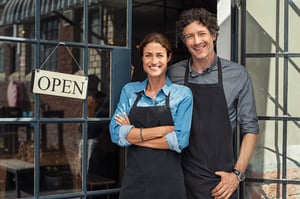 When it comes to Restaurant Insurance, there is no one-size-fits-all solution. Every restaurant has different assets that need to be protected, different risk factors, and different types of liability. And every restaurant owner has different levels of comfort when it comes to those risks and liabilities.
When it comes to Restaurant Insurance, there is no one-size-fits-all solution. Every restaurant has different assets that need to be protected, different risk factors, and different types of liability. And every restaurant owner has different levels of comfort when it comes to those risks and liabilities.
Restaurant Insurance can be very complicated if you aren’t familiar with the risks, your different insurance options, and typical exclusions. Here is some basic information about Restaurant Insurance to help ensure that you get the best insurance for your needs.
Insurance Coverage Your Restaurant May Need
With all the different types of insurance coverage available today, including some rather odd ones like chicken insurance and alien abduction insurance (we kid you not!), it’s best to start with the basics and add additional coverage IF you need it. Here are three basic types of coverage every restaurant owner should consider.
Commercial General Liability (CGL) Insurance
CGL protects your business from bodily injury, personal injury, or property damage caused by your restaurant or on your restaurant’s premises. For example, if someone is injured after falling on your property or becomes sick after eating your food, they can sue you. Commercial Liability Insurance will pay for your legal expenses such as attorney fees and judgments against your restaurant.
It’s important to consider your risks and determine if your CGL policy will cover it or if it is an exclusion. For example, if you serve alcohol to a customer who then causes a car accident upon leaving your restaurant, you could be held liable for any damage or injury caused by the accident. Most CGL policies won’t cover you in that situation, but Liquor Liability Insurance will.
Property Insurance
Property Insurance protects many of your assets, such as your building and your equipment from fire, storm, or theft damage. It may also include Business Interruption Insurance that covers lost income if damage forces you to close your restaurant temporarily.
Workers’ Compensation Insurance
In Pennsylvania, if you have one or more employees – whether they are full- or part-time, you are probably required to carry WC Insurance for each of your employees. WC covers medical expenses and lost wages if your employee is injured on the job. It also protects you against lawsuits filed by an injured worker.
Those are the basic coverages, but depending on your situation, there may be other types of insurance to consider. For example, if you use a vehicle for business, you should have Commercial Auto Insurance for that vehicle, whether it is owned or leased or even if it belongs to an employee.
An insurance agent who specializes in Restaurant Insurance can help you identify any additional risks and determine the best way to cover those risks.
How is the Cost of Your Restaurant Insurance Determined?
Every restaurant is individually underwritten based on the circumstances of its establishment. You will be asked many questions when you apply for insurance, and insurance companies will do some of their own research before quoting you a price. Your costs will be based on how much risk or liability you restaurant poses, the value of what you need to protect, and the level of your coverage.
To determine your risk (how likely you are to make a claim), insurance companies will look at your loss history, years in business, hours of operation, whether or not you sell alcohol and if so, how much, activities within your restaurant, such as entertainment, ID checkers, etc.
To determine the value of what you need to protect, they will look at the size of your property, the volume of your sales and payroll, the type of property, etc.
The level of coverage will be based on several things, including lease requirements, lender requirements, and how comfortable you are with risk.
When you talk to your insurance agent, be open and honest about the operation of your restaurant. Otherwise, you might find yourself in a situation where you don’t have enough coverage or any coverage when you need it.
How to Save Big on Restaurant Insurance
Because American Insuring Group’s agents have experience in Restaurant Insurance, we can help identify risks that are typical for restaurants as well as risks unique to your establishment to ensure that you have the right coverage to protect your assets. As independent agents, we can check with several companies to ensure that you get the best price for that coverage.
Give us a call at (800) 947-1270 or (610) 775-3848 or connect with us online and let us show you how we can lower all your Commercial Insurance Costs!



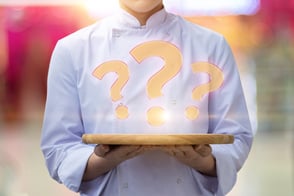 Whether you are a new restaurant owner or have been in business for decades,
Whether you are a new restaurant owner or have been in business for decades, 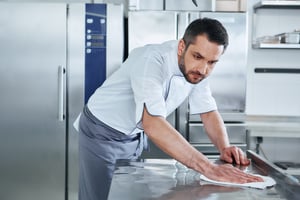 If you are a restaurant owner or manager, you already understand how vital a clean kitchen is to the safety of your customers. But have you ever considered how a clean kitchen can save you money, such as lowering your
If you are a restaurant owner or manager, you already understand how vital a clean kitchen is to the safety of your customers. But have you ever considered how a clean kitchen can save you money, such as lowering your 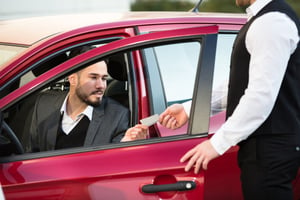 If you’re trying to set your restaurant apart, you may consider offering valet service. This service could make sense if you have limited parking at your restaurant or just want to offer a service that goes above and beyond what is expected.
If you’re trying to set your restaurant apart, you may consider offering valet service. This service could make sense if you have limited parking at your restaurant or just want to offer a service that goes above and beyond what is expected. As the
As the 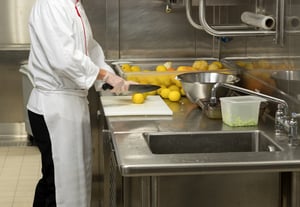 As a restaurant owner, your number one priority should be ensuring the safety of the food you serve. Beyond the human element of food safety, foodborne illness can result in negative publicity, huge fines, possible jail time, lawsuits, and higher
As a restaurant owner, your number one priority should be ensuring the safety of the food you serve. Beyond the human element of food safety, foodborne illness can result in negative publicity, huge fines, possible jail time, lawsuits, and higher 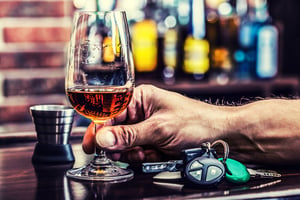 There is no denying that we live in a litigious society, and restaurants are not immune to lawsuits. In fact, the very nature of the business often makes them more vulnerable to lawsuits. Don’t believe us?
There is no denying that we live in a litigious society, and restaurants are not immune to lawsuits. In fact, the very nature of the business often makes them more vulnerable to lawsuits. Don’t believe us?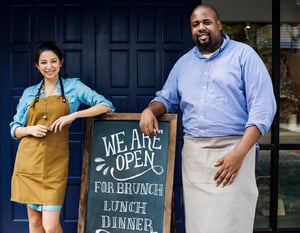 Restaurant Insurance
Restaurant Insurance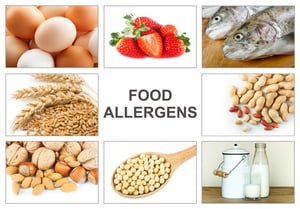 Are food allergies affecting the cost of your restaurant liability insurance? Maybe.
Are food allergies affecting the cost of your restaurant liability insurance? Maybe. 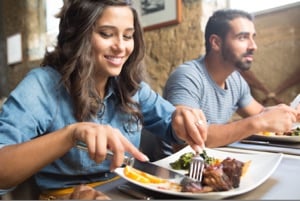 Restaurant Insurance can be complicated
Restaurant Insurance can be complicated



